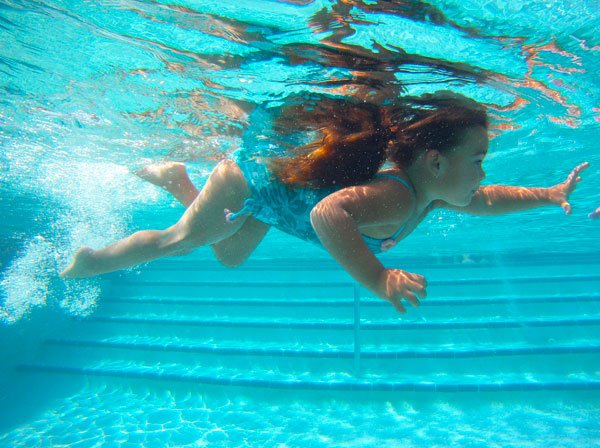Frequently Asked Questions
-
ISR is the product over 45 years of ongoing development in the area of aquatic survival instruction for infants and children. ISR's primary focus is to teach your child to become a productive swimmer, or floater in any depth of water. The goal of ISR is that your child becomes an "aquatic problem solver." ISR will greatly increase your child's chance of surviving an aquatic accident, even when fully clothed!
-
Yes. At ISR, we believe that part of survival for a child who can walk is swimming. Children learn the swim-float-swim sequence so that they could get themselves to safety. The difference in our program is that they will learn swimming AND survival skills and how to be an aquatic problem solver.
-
The reason for this is multifaceted. First, repetition and consistency are crucial elements of learning for young children. Research shows that short, more frequent lessons result in higher retention. Second, most children have fairly short attention spans and will not be able to focus on the task for longer and we want to take advantage of the best time for learning. A third reason is that, though the pool temperature is maintained at 78-88 degrees, the temperature is still lower than your child's body temperature. Lessons are work and therefore will also be loosing body heat. Instructors check students regularly for temperature fatigue since this is an indicator of physical fatigue.
-
Everyone needs a little break from learning to process the information and in this case to give muscles a chance to recover. In addition, you need to be able to spend time with your family, as does your instructor. Weekends are family time. Periodically, if weather or other issues have caused lessons to be cancelled for numerous days, your instructor may choose to offer make up lessons on a weekend. This is strictly up to the instructor and based on the availability of parents.
-
Based on our research, we know that refresher lessons are important because children change so much both cognitively and physically during the first 4-5 years of life. It is important that their water survival skills grow with their bodies.
Frequency depends on the child's age, growth rate, skill level and confidence level. The goal of refresher lessons is to help your child adjust his/her new body size and weight to his/her existing skill level. Your instructor will work with your child to help fine-tune his or her aquatic experience to assist with building efficiency, which will result in self-confidence. This is especially important if your child has not been able to practice any appropriate aquatic skill between seasons.
-
No. Every child can learn. It is my job to find the best way to communicate the information so that it makes sense to the child. I set your child up to be successful every time. I start where they are.
-
YES! ISR is dedicated to safety and maintaining numerous safety protocols to promote safe lessons. Your child's health and well-being are our highest priority and are closely monitored on a daily basis. In addition, your child's medical and developmental history is a mandatory part of the ISR national registration process, all of which is held strictly confidential. All ISR instructors undergo an intensive and rigorous training that far exceeds any other training program of this kind. Each ISR instructor is also required to attend a yearly re-certification symposium that includes quality control as well as continuing education.
Your education in the area of aquatic safety for your entire family is an integral part of your child's lessons. You will receive access to the "Parent Resource Guide", written by Dr. Harvey Barnett and JoAnn Barnett, which will inform you of every aspect of swimming for infants and children.
-
In May of 2010, the AAP has now changed it's policy regarding the age at which children may start swimming lessons, based on research stating that swim lessons may actually provide reduction in drowning risk of children ages 1- to 4-years-old. That study, "Association Between Swimming Lessons and Childhood Drowning" published in the Archives of Pediatric and Adolescent Medicine, March, 2009, by Brenner et. al. was the first study to probe the relationship between drowning reduction and swimming skills. That study concluded that, "Participation in formal swimming lessons was associated with an 88% reduction in the risk of drowning in the 1- to 4-year-old children..."
The AAP encourages parent's to consider that starting water-survival skills training at an early age must be individualized, based on the child's frequency of exposure to water, emotional maturity, physical limitations and health concerns related to swimming pools.


